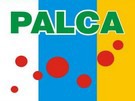According to the latest figures released by the Spanish Ministry of Agriculture, the price at origin of Canary bananas in week 18 stood at an average of 98 cents/kilo, exceeding the average of the last 5 years by 140%, and by 333% compared to the 22.6 cents/kilo reported by MAPA in the same week of 2023.
"Canary bananas hit rock bottom around this time last year," says Sergio Rodríguez, from Palca. "From May to July of 2023, the price climbed back to 0.50-0.55 euros/kilo, but in September it collapsed again. The high temperatures led to excess production of bananas in the Canary Islands; in fact, all the fruit that should have reached the market in April-May did so in January-February, causing prices to drop drastically. However, now we are missing all that fruit."
"The market in the Peninsula and the Canary Islands absorbs around 7.5-8 million kilos of fruit weekly, but at this time we are only producing about 6 million kilos," says Sergio. "In May, we actually fell even below that figure. For now, no significant increases are expected in the next month, so prices are likely to remain high at least until June."
"However, given the quantities we had in the last 15 months, up to February 2024, some producer organizations decided to enter the European market to reduce the supply in the domestic market. Thanks to this, they have managed to open the Polish market for Canary bananas. From January to April, a total of about 400,000 kilos have been exported in regular shipments, a respectable amount for a newly opened market, and in view of the good results achieved, the first steps have been taken to export to Germany and to resume shipments to France."
"This has proven that we, at Palca, were right when we said that Canary bananas could go beyond the Pyrenees and reach new markets with stable volumes. We must act responsibly and not fall into the comfort of shipping fruit to a market where the demand is already known, and where bananas from other origins account for between 40 and 45% of the market share. We must also avoid constant competition between ourselves."
"Last year, this situation led to 27 million kilos of bananas produced in the Canary Islands having to be discarded and removed from the market to keep prices stable. If we had had open markets in Europe, we wouldn't have been under all that pressure in Spain or forced to endure terrible prices for 15 months. If the production got out of hand at any time, withdrawing some would always remain an option, but we cannot accept that happening systematically, because we produce our fruit to have it marketed, not withdrawn from the market to keep prices stable."
"If the average yield is 65 t/ha, how is it possible for farms to declare up to 200 t/ha in order to get POSEI aid?"
There have been reports of oversupply of Canary bananas and product withdrawals already for a few years, "approximately from 2017 to 2023, except for the period after the volcanic eruption in La Palma, when 70 million kilos were lost. At Palca, we have been warning about this situation, asking the Department of Agriculture to limit the setting up of new plantations and to better control the granting of POSEI aid in order to regulate the excess production, because we are seeing unthinkable situations in some farms that benefit from that aid."
"The fact is that while the yield of banana plantations is about 65 tons per hectare, there are farms declaring productions of more than 100,000 and even up to 200,000 kilos per hectare."
"We are not certain about how those productions are obtained. At Palca, we suspect fraud from unregistered farms selling their fruit through registered ones to benefit from as much POSEI aid as possible. That's why we are asking the Department to verify those declared productions."
 For more information:
For more information:
PALCA
Tel.: +34 638 80 99 05
[email protected]
www.palca.es

